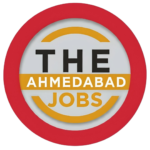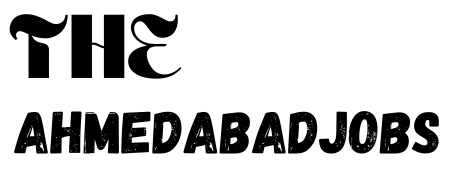Introduction: The Importance of a Tailored Resume
In the competitive job market, the significance of having a customized resume tailored to specific job environments, such as multinational corporations (MNCs) and small office jobs, cannot be overstated. Crafting a resume that aligns with the unique expectations and requirements of each type of organization can dramatically enhance your chances of securing the desired job. A generic resume may fail to capture the distinct skills and experiences relevant to different work settings, making it essential to tailor your resume appropriately.
For instance, MNCs often seek candidates with robust international experience, advanced technical skills, and the ability to navigate complex corporate hierarchies. On the other hand, small offices may prioritize versatility, adaptability, and hands-on expertise across multiple tasks. Recognizing these diverse priorities and incorporating relevant keywords and achievements into your resume can significantly bolster your application’s effectiveness.
Furthermore, a tailored resume signals your seriousness and keen interest in the specific role and company. HR professionals and hiring managers appreciate the effort and diligence involved in customizing a resume, often viewing it as indicative of a proactive and detail-oriented candidate. Consequently, taking the time to refine your resume to highlight the most pertinent qualifications and experiences can be a decisive factor in advancing to the interview stage.
Therefore, to optimize your job search strategy, it is essential to understand and address the distinct demands of MNCs and small offices within your resume. This involves not only tweaking job descriptions and achievements but also aligning your career objectives and personal branding with the organizational culture and values. By doing so, you enhance the resonance of your resume, making it more appealing to potential employers and increasing your likelihood of achieving your career aspirations.
Understanding the Employer: MNCs vs. Small Offices
Navigating the job market requires a nuanced understanding of the distinct expectations and requirements of different employers, particularly when distinguishing between Multinational Corporations (MNCs) and small offices. Both types of organizations possess unique characteristics that profoundly impact what they seek in potential employees. Crafting the perfect resume demands a tailored approach that aligns with these specific employer expectations.
Multinational Corporations (MNCs) often operate across various countries and cultures, necessitating candidates with international experience and a robust specialization in specific skills. These organizations value adaptability in a global work environment, requiring employees to be comfortable with diverse work cultures and practices. MNCs often seek individuals who have a higher degree of expertise in a particular area, as their operations are frequently segmented into specialized departments. Moreover, proficiency in multiple languages and an understanding of international business etiquette can greatly enhance a candidate’s appeal. Highlighting global exposure and specialized knowledge on your resume can significantly bolster your prospects with MNCs.
Conversely, small offices typically function with a leaner team where versatility and a broader skill set are paramount. In such settings, employees are often required to wear multiple hats and engage in various roles beyond their primary job description. Therefore, small offices tend to favor candidates who exhibit a proactive attitude, strong problem-solving abilities, and a willingness to tackle diverse tasks. Demonstrating a broad competency range and a readiness to contribute in multiple capacities can make a candidate stand out in a small office environment. Your resume should reflect your ability to multitask effectively and adapt to varying job demands.
Understanding these fundamental differences between MNCs and small offices will guide you in tailoring your resume to meet the specific needs and expectations of each type of employer. A well-crafted resume that speaks directly to the desired attributes of either an MNC or a small office can significantly enhance your chances of securing a position within the respective organizational framework.
Key Elements of a Professional Resume
Creating a compelling resume is a delicate balancing act that requires attention to detail and a strategic approach to content. Regardless of whether one is applying for a position within an MNC or a small office, certain fundamental components must be included to ensure the resume stands out for the right reasons.
The cornerstone of any resume is the contact information. Positioned at the top, this section should include your full name, phone number, email address, and LinkedIn profile or a personal website if applicable. Ensuring that this information is up-to-date and easily accessible is crucial for potential employers to reach you efficiently.
Following the contact information is the professional summary. This brief section aims to encapsulate who you are as a professional in two to three sentences. The summary should highlight your key achievements, skills, and what you aim to bring to the prospective role. Think of it as your elevator pitch to the employer.
Next is the work experience section, arguably the heart of the resume. This part should list your previous jobs in reverse chronological order. Each entry should include the job title, the company’s name, the dates of employment, and bullet points detailing your key responsibilities and accomplishments. Quantifiable achievements, such as “increased sales by 20%” or “managed a team of 10,” add weight and specificity, making your experience more compelling.
The education section should similarly follow a reverse chronological format. Include the name of the institutions, degrees earned, and any honors or notable achievements. If you are a recent graduate, placing this section before work experience can be beneficial.
Skills should be listed next. Aim to tailor this section to the job you’re applying for, highlighting both hard and soft skills that align with the job description. Proficiency in specific software or technical skills, alongside qualities like leadership or communication, often appeal to a broad range of employers.
Lastly, the certifications section is where you can highlight any additional training or qualifications that are relevant to the role. Whether these are industry-specific licenses, professional courses, or online certifications, showcasing continuous learning can set you apart.
The key to a professional resume is maintaining a concise, relevant, and clean format. Each section forms the backbone of your application, ensuring you present a well-rounded, professional image that resonates whether you’re targeting MNCs or smaller offices.
Crafting a Resume for MNC Jobs
When targeting multinational companies (MNCs) with your resume, it’s crucial to adopt a strategic approach that highlights your international experiences, advanced degrees, and industry-specific skills. These elements not only demonstrate your readiness to contribute to a global enterprise but also set you apart from other candidates vying for the same role.
Firstly, it’s important to emphasize any international experience you may have. This could include previous work assignments, internships, or academic pursuits abroad. Showcasing your ability to navigate different cultural landscapes signals your adaptability and global mindset, which are highly valued in MNCs. Mention key achievements and responsibilities undertaken during these experiences to illustrate your impact.
Another critical element is to highlight your industry-specific skills and advanced qualifications. Possessing certifications or advanced degrees relevant to the industry shows MNCs that you bring a higher level of expertise to the table. For instance, certifications such as PMP, Six Sigma, or CFA can distinguish you in the fields of project management, process improvement, and finance, respectively.
Furthermore, it’s imperative to use industry-standard keywords throughout your resume. Multinational companies commonly employ automated applicant tracking systems (ATS) to filter candidates. Ensuring that your resume is well-aligned with the specific job description by incorporating pertinent keywords can enhance your chances of passing these initial screening stages. Carefully review the job postings to identify and integrate these keywords naturally into your resume.
Alignment with the company’s global values and practices should not be overlooked. Research each MNC’s mission statements and core values, and reflect them subtly in your resume. This alignment demonstrates that you’re not only qualified but also culturally fit for the organization. Tailoring your resume in this manner shows prospective employers that you are in tune with their overarching objectives and practices.
Creating a Resume for Small Office Jobs
When crafting a resume for small office jobs, it’s essential to emphasize certain attributes that are particularly valued in the context of a smaller, more close-knit working environment. A small office often requires employees who can juggle multiple responsibilities, adapt quickly, and directly contribute to the team’s overall success. For this reason, showcasing your multitasking capabilities and a broad range of skills is crucial.
Begin by ensuring that your resume is clear and concise, highlighting your various skill sets. Small businesses have limited resources, so they often seek individuals who can take on diverse roles. Therefore, your resume should reflect versatility. List specific examples where you successfully managed several tasks simultaneously or had the opportunity to cross-train in different areas. This demonstrates your ability to thrive in a dynamic workplace.
Moreover, it’s vital to specify your direct contributions to previous teams or projects. Small offices usually function on strong teamwork and a “all hands on deck” philosophy; hence, concrete examples of your proactive attitude can set you apart. Use quantifiable achievements to illustrate how your involvement influenced the success of your past employers. For instance, if you streamlined a process that saved time or money, or if you implemented a new system that improved efficiency, be sure to highlight these contributions.
Flexibility and adaptability are also key attributes for success in small office environments. A small office can be unpredictable, and the ability to pivot and handle unforeseen challenges is often required. Therefore, include instances where you’ve demonstrated flexibility, whether it’s stepping into a new role with minimal training, adapting to sudden changes, or taking initiative to solve unexpected problems. Such characteristics not only show your capability but also your readiness to be a dependable team member.
Finally, tailor each resume submission to the specific small office. Mention the company’s name and align your skills with their stated needs. A customized resume indicates genuine interest and can enhance your prospects of securing the position. By focusing on your multitasking abilities, a wide-ranging skill set, and your proactive and adaptable nature, you can effectively showcase why you’re ideal for a small office job.
The Role of Soft Skills
Soft skills play an indispensable role in crafting a compelling resume, irrespective of whether you are applying to a multinational corporation (MNC) or a small office. While technical expertise and hard skills can be easily quantified, soft skills offer a qualitative aspect that can significantly influence hiring decisions. Understanding how to tailor these skills for different job environments can make your resume stand out.
When targeting MNCs, certain soft skills gain paramount importance due to the complex and dynamic nature of these organizations. Highlighting global communication skills is crucial, as MNCs often require interaction with international clients, colleagues, and stakeholders. Showcasing your ability to communicate effectively across cultural and geographical boundaries can put you at an advantage. Additionally, teamwork in diverse environments should be emphasized. Detailing experiences where you’ve successfully worked within multicultural teams demonstrates your capacity to collaborate with a variety of individuals. Adaptability to change is another key trait. With the fast-paced evolution of global markets and business strategies, illustrating your ability to adapt swiftly to new technologies, processes, or corporate strategies can resonate well with MNC recruiters.
Conversely, resumes tailored for small offices should focus on interpersonal skills, customer service orientation, and the ability to work independently or within small teams. Small offices often demand a close-knit working relationship among employees and a direct interaction with clients. Thus, highlighting your interpersonal skills can convey your capability to build strong working relationships and foster a positive work environment. Customer service orientation is another critical soft skill for small offices, where client satisfaction can directly impact business success. Moreover, emphasizing your ability to work independently or effectively within small teams can showcase your self-sufficiency and initiative-taking capabilities, qualities that are highly valued in smaller settings.
Weaving these soft skills organically into your professional summary and work experiences can significantly enhance the readability and impact of your resume. Instead of listing these skills in isolation, integrate them into the narratives of your achievements and job roles. For instance, rather than merely stating ‘adaptability’, you might describe a specific scenario where you swiftly adapted to a new project management tool during a company-wide software upgrade. This approach not only underscores your soft skills but also provides concrete evidence of their application, making your resume more relatable and compelling to potential employers.
Polishing and Proofreading Your Resume
Polishing and proofreading your resume is a critical step in the job application process, whether you’re targeting multinational corporations (MNCs) or smaller office environments. A meticulously reviewed resume can greatly enhance your chances of securing an interview, as it reflects your attention to detail and commitment to quality.
Begin by thoroughly checking for grammar and spelling errors. Even minor mistakes can leave a negative impression on potential employers, suggesting a lack of diligence. Utilize grammar checking tools available online, such as Grammarly or Hemingway, to catch common errors that might have been overlooked.
Consistency is another key aspect to consider. Ensure uniformity in format, font, and style throughout your resume. This includes consistent use of bullet points, alignment, and section headings. An inconsistency can be distracting and may convey a lack of organization.
Feedback from peers or mentors can provide invaluable insights. They may catch errors or suggest improvements that you might not have considered. Sharing your resume with someone familiar with the industry can offer perspective on whether your resume effectively highlights relevant skills and experiences.
For those aiming to perfect their resume, professional resume editing services can be a worthwhile investment. These services offer expert advice and can help refine the content, ensuring it is tailored to your desired job role. They can enhance readability, improve phrasing, and ensure that your resume stands out in a competitive job market.
A flawlessly presented resume can set you apart from other candidates. It demonstrates your commitment to professional excellence and leaves a lasting positive impression on hiring managers. By dedicating time and effort to polish and proofread your resume, you showcase your best self and increase your chances of career success.
Final Steps: Customizing for the Job Application
As you approach the final steps of crafting your resume, one crucial element stands out: customization for each job application. Tailoring your resume according to the specific job description not only underscores your seriousness about the role but also highlights the most relevant experiences and skills the employer is seeking.
Start by meticulously reviewing the job description. Identify the key skills, experiences, and qualifications listed. Make a deliberate effort to match these with your relevant experience or skills. For instance, if the job requires proficiency in specific software or a particular methodology, ensure these are prominently featured on your resume, ideally in both your skills section and within your job experiences. Remember, your goal is to make it as easy as possible for the hiring manager to see that you are a perfect fit for their needs.
In addition to revising your resume, it is equally important to craft a tailored cover letter. The cover letter provides an opportunity to delve into specific examples of how your background aligns with the job and company. Utilize the language and keywords from the job description, connecting the dots between what the employer wants and what you have to offer. Your cover letter should not merely recapture your resume, but should instead add a narrative that speaks directly to the hiring organization’s goals and culture.
When customizing your resume for both MNCs (Multinational Corporations) and small office environments, it’s essential to recognize the differences in their expectations. MNCs might prioritize global experience, knowledge of diverse markets, or advanced technological skills, whereas small offices could value versatility, a hands-on approach, and community involvement. Reflect these preferences within the tailoring of your resume and cover letter.
Ultimately, the effort you invest in customizing your resume and cover letter for each application will considerably enhance your chances of standing out. By clearly articulating your alignment with the specific requirements and culture of the job and company, you demonstrate a genuine interest and preparedness that can set you apart in a competitive job market.


